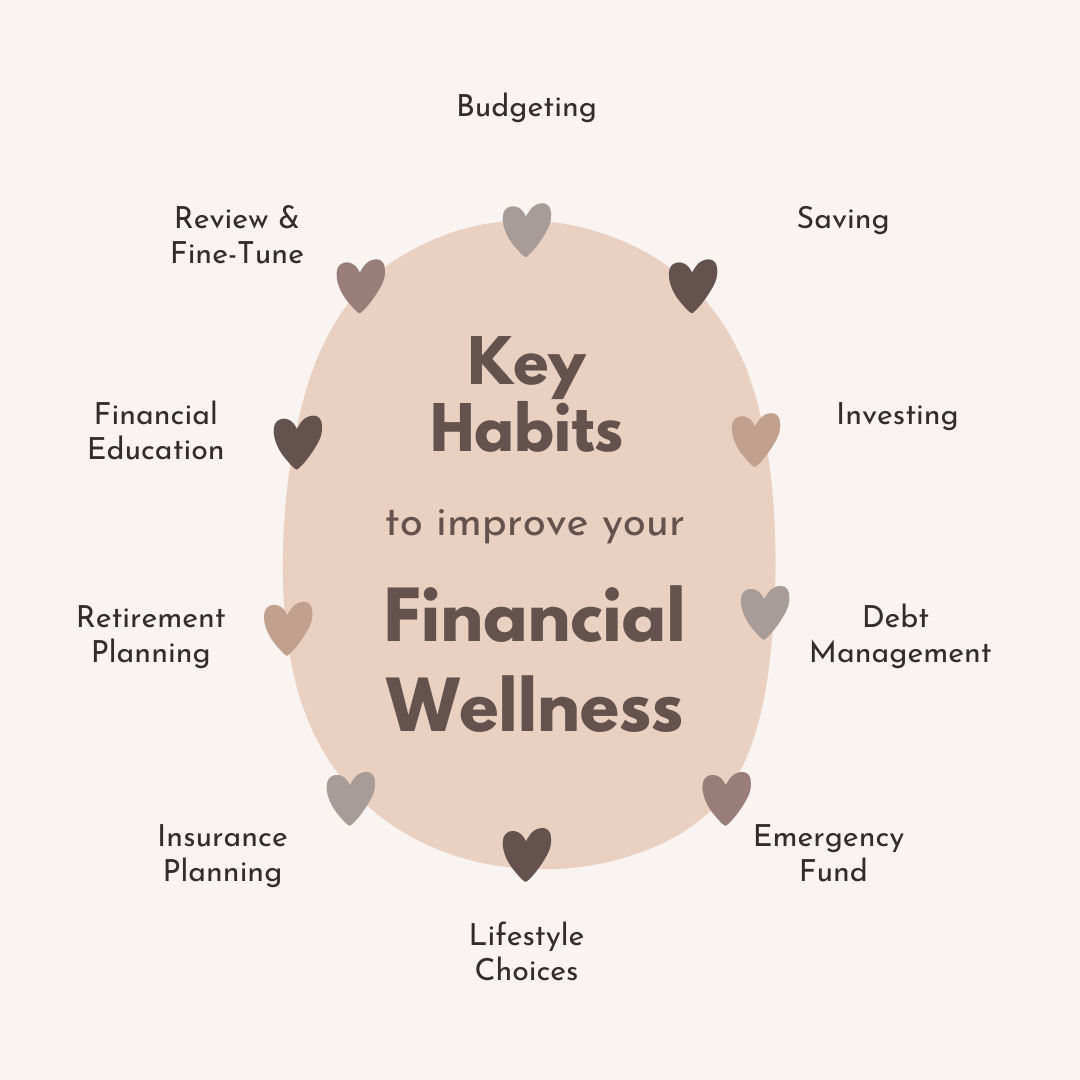Navigating personal finance can be overwhelming with so many strategies and options available. However, the right books can provide clarity and help build a strong financial foundation. In this article, we highlight seven essential personal finance books that offer valuable guidance for various financial needs. Whether you’re new to finance, struggling with debt, or looking to optimize investments, these books offer practical advice and actionable strategies. From fundamental principles to advanced techniques, each book provides insights to help you reshape your financial outlook and achieve your goals. Prepare to transform your financial future with these must-read classics.
1. The Total Money Makeover by Dave Ramsey (Visit)
Target Audience: Individuals struggling with debt and those new to personal finance looking for a structured plan to achieve financial stability.
Key Takeaways:
- Baby Steps Approach: Ramsey outlines a series of “Baby Steps” to achieve financial stability, starting with building a $1,000 emergency fund.
- Debt Snowball Method: Focus on paying off small debts first to build momentum and then tackle larger debts.
- Budgeting: Emphasizes creating and sticking to a zero-based budget where every dollar is allocated.
- Emergency Fund: Build a fully-funded emergency fund covering 3-6 months of expenses before investing.
- Investing for Retirement: Once debt-free, focus on investing 15% of your income into retirement accounts.
- Debt-Free Living: Advocates for living debt-free and avoiding credit cards.
- Financial Peace: The ultimate goal is achieving financial peace and independence through disciplined financial habits.
2. The Millionaire Next Door by Thomas Stanley and William Danko (Visit)
Target Audience: Individuals interested in understanding the habits of wealthy people and those looking for practical advice on accumulating wealth through discipline and frugality.
Key Takeaways:
- Wealth Accumulation: Many millionaires live below their means and prioritize saving and investing over high consumption.
- Frugality: Wealthy individuals often practice frugality, avoiding luxury purchases and living modestly.
- Asset Allocation: Focus on accumulating assets rather than high-income occupations.
- Financial Independence: Building wealth through consistent savings and investments rather than flashy lifestyles.
- Education and Planning: Importance of educating oneself about finances and planning for long-term wealth.
- Investment Discipline: Emphasize long-term investing strategies and avoiding speculative investments.
- Entrepreneurial Spirit: Many millionaires are self-employed or own businesses, contributing to their wealth.
3. The Psychology of Money by Morgan Housel (Visit)
Target Audience: Readers interested in the psychological aspects of personal finance and those looking to understand how their mindset influences their financial decisions.
Key Takeaways:
- Behavioural Finance: Explores how emotions and behaviors affect financial decisions more than technical knowledge.
- Wealth and Happiness: Discusses the relationship between money and happiness, stressing contentment over wealth accumulation.
- Risk and Uncertainty: Emphasises managing financial risk and accepting uncertainty as part of investing.
- Long-Term Thinking: Advocates for long-term thinking and patience in wealth-building.
- Financial Independence: Importance of having enough money to make choices that align with personal values and goals.
- Historical Perspective: Uses historical examples to illustrate how different attitudes toward money can influence financial outcomes.
- Financial Flexibility: The value of maintaining financial flexibility to adapt to changing circumstances.
4. How to Make Your Money Last by Jane Bryant Quinn (Visit)
Target Audience: Pre-retirees and retirees seeking comprehensive advice on managing retirement funds and ensuring their money lasts throughout their retirement years.
Key Takeaways:
- Retirement Planning: Provides strategies for ensuring your retirement savings last throughout your lifetime.
- Income Streams: Discusses various sources of retirement income, including Social Security and pensions.
- Investment Strategy: Advice on investing in a way that balances growth and safety as you approach retirement.
- Spending Strategies: Tips on managing spending to ensure that funds last, including budgeting and adjusting expenses.
- Healthcare Costs: Highlights the importance of planning for healthcare expenses in retirement.
- Estate Planning: Recommendations for planning your estate and managing inheritances.
- Lifestyle Adjustments: Encourages adjusting lifestyle expectations to match financial realities in retirement.
5. Make Your Kid a Money Genius (Even If You’re Not) by Beth Kobliner (Visit)
Target Audience: Parents looking to educate their children about money and those seeking effective ways to teach financial literacy from a young age.
Key Takeaways:
- Age-Appropriate Lessons: Provides practical financial lessons tailored to different age groups.
- Saving and Spending: Teaches kids the basics of saving, spending, and budgeting.
- Investing Basics: Introduces the concept of investing and the importance of financial literacy from a young age.
- Financial Independence: Encourages fostering independence by involving kids in family financial decisions.
- Understanding Debt: Educates children about the responsible use of credit and the risks of debt.
- Financial Role Models: Emphasizes the importance of parents being good financial role models.
- Long-Term Financial Skills: Aims to instill lifelong financial skills and habits early on.
6. Raising Financially Fit Kids by Joline Godfrey (Visit)
Target Audience: Parents and educators who want a hands-on approach to teaching children about money management and financial responsibility.
Key Takeaways:
- Hands-On Learning: Advocates for hands-on financial education through real-life experiences.
- Money Management Skills: Focuses on teaching kids how to manage money through practical activities and exercises.
- Entrepreneurship: Encourages fostering an entrepreneurial spirit and teaching kids about earning and managing their own money.
- Financial Conversations: Stresses the importance of having open conversations about money with children.
- Allowance Systems: Offers strategies for implementing effective allowance systems to teach budgeting and saving.
- Family Involvement: Encourages family involvement in teaching financial concepts and decision-making.
- Financial Goals: Teaches kids to set and achieve financial goals, instilling a sense of responsibility.
7. Financial Freedom by Grant Sabatier (Visit)
Target Audience: Individuals seeking financial independence and early retirement, including those who are interested in optimizing their income and making strategic investments.
Key Takeaways:
- Early Retirement: Shares strategies for achieving financial independence and retiring early.
- Income Optimization: Provides advice on maximizing income through side hustles, career advancements, and investments.
- Expense Management: Focuses on reducing expenses and living frugally to accelerate savings.
- Investment Strategies: Emphasizes smart investing and managing investments for long-term growth.
- Mindset Shift: Encourages a shift in mindset towards financial independence and away from traditional retirement norms.
- Lifestyle Design: Discusses designing a lifestyle that aligns with personal values and financial goals.
- Actionable Steps: Offers practical, actionable steps to achieve financial freedom and create a fulfilling life.
These seven personal finance books offer valuable insights for various financial situations and stages. Whether you’re dealing with debt, planning for retirement, teaching kids about money, or striving for early financial freedom, each book provides practical advice tailored to your needs. Reading these books will help you improve your financial knowledge, apply effective strategies, and work towards a more secure and fulfilling financial future.

